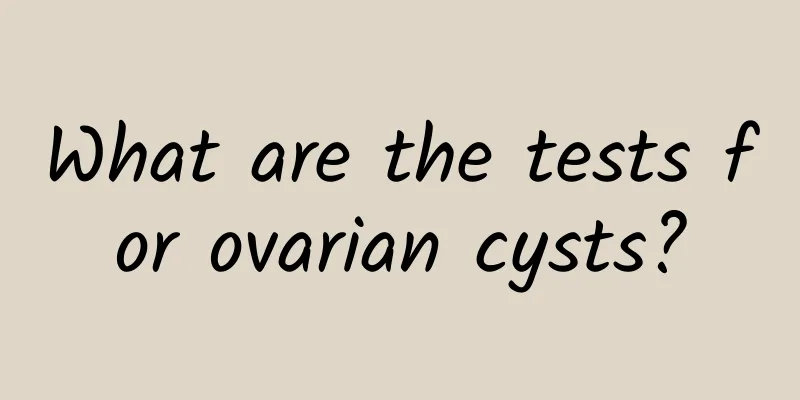The best "menopause period" for women has been announced, reminding you: the closer you are to this age group, the healthier you are.

|
Dear ladies, have you ever quietly stared at your no longer young face in the mirror in the dead of night and sighed? Have you ever woken up in hot flashes and sweat, feeling an unspeakable anxiety and powerlessness? Menopause, a topic that seems far away but is approaching step by step, is not only a turning point of physiological phenomena, but also a touchstone for women's health and longevity. Today, as your gynecologist friend, I want to tell you a secret - the arrival of menopause actually has its "golden moment". First, let's talk about those headache-inducing symptoms - hot flashes, insomnia, mood swings... These are common "uninvited guests" during menopause. But do you know? The appearance of these symptoms is largely related to the age of menopause. Early or late menopause may mean potential health risks. So, which age group is the healthiest for menopause? After years of research and clinical observation, we found that most women's menopause is concentrated between 45 and 55 years old. For women in this age group, not only do their hormone levels change relatively smoothly, but their cardiovascular, skeletal and other systems are also in relatively good health. This means that the closer women are to menopause at this age, the better their bodies are able to adapt to the changes of this life stage, thereby reducing the risk of various chronic diseases. But if you’ve already reached this stage, or are about to enter this period, how should you deal with it? Here, I give you some professional suggestions: Eat a balanced diet and supplement calcium: As estrogen levels decrease, bone density will gradually decrease, so it is essential to consume enough calcium and vitamin D. At the same time, ensuring the intake of protein, fiber and antioxidants in the diet helps maintain overall health. Do moderate exercise to improve your physical fitness: Regular physical exercise, especially strength training and aerobic exercise, can strengthen bones and muscles, improve cardiovascular function, help regulate mood, and alleviate menopausal symptoms. Regular check-ups, early prevention and treatment: Before and after menopause, women's risk of developing breast cancer, endometrial cancer and other diseases increases. Therefore, regular gynecological examinations and breast examinations are indispensable, as they are the "sentinels" for early detection of problems. Psychological adjustment and positive attitude: Menopause is not only a physical change, but also a psychological challenge. Learning to relax, maintaining an optimistic attitude, and seeking help from a counselor when necessary are all effective strategies for coping with menopause. A reasonable diet is also very important for alleviating menopausal discomfort and maintaining physical health. Here are some foods that are good for women during menopause: Foods rich in folate, such as green leafy vegetables and beans, may help reduce the risk of ovarian cancer. Foods rich in vitamin C, such as citrus fruits and strawberries, help protect the ovaries from oxidative damage. Foods rich in selenium: such as mushrooms and kelp, can enhance the immune system and fight free radicals. Foods rich in B vitamins: such as cereals, oats, corn and other grains, as well as green leafy vegetables such as spinach, help protect the ovaries and also have a good lipid-lowering effect. Foods rich in calcium: such as tofu, dried tofu, soy milk, tofu pudding and other soy products as well as seaweed foods, can help prevent osteoporosis. Protein-rich foods, such as lean meats, fish, eggs, and soy products, help maintain muscle mass and overall health. Low-fat foods: Reducing the intake of high-fat foods can help control weight and reduce the risk of cardiovascular disease. Finally, I want to say that menopause is not the end of life, but a new beginning. It marks the transition of women from the reproductive period to the non-reproductive period and is a natural process. As long as we are well prepared and respond positively, we can gracefully cross this hurdle and embrace a more colorful second half of our life. So, some people may be curious, do women lose their sexual desire after menopause? After menopause, a woman's sexual desire may change, depending on individual differences. Some women may experience a loss of libido, which may be due to the gradual decline in ovarian function and a drop in estrogen levels, leading to vaginal dryness, reduced secretions, etc., which in turn affects the quality of their sex life. In addition, psychological factors such as anxiety and depression may also aggravate this symptom. However, not all postmenopausal women experience a loss of libido. Women can still enjoy sex after menopause, and maintaining a regular sex life is good for health. If you experience decreased libido or other related problems, it is recommended to consult a doctor and take appropriate measures according to your personal situation. Dear ladies, let us embrace this natural transition and take good care of your health, because you deserve the best quality of life. Remember, health is our most precious wealth. Let us work together to improve our health! |
Recommend
The high risk of breast cancer has nothing to do with breast size, but is related to this "risk factor"...
Are people with larger breasts more likely to get...
What are the dangers of endometriosis and what are its characteristics?
Endometriosis is a relatively serious disease, wh...
Beware of the three major hazards of ovarian cysts
Ovarian cysts are a common gynecological disease,...
What are the precautions for treating cervical erosion? Pay attention to these matters when treating cervical erosion
What are the misunderstandings about the treatmen...
What are the causes of menopausal syndrome?
Menopausal syndrome is a common disease that ofte...
How to take care of yourself during menopause?
For female friends, menopause is the same as meno...
What medicine is better for uterine fibroids? How to use medicine for uterine fibroids
Generally speaking, uterine fibroids refer to com...
What to do about irregular menstruation in different body types
Menstruation is a normal physiological phenomenon...
What are the causes of dysmenorrhea?
Dysmenorrhea is a common phenomenon in life, and ...
Causes of acute pelvic inflammatory disease
What is acute pelvic inflammatory disease? Many w...
What is the physical therapy for pelvic inflammatory disease?
What are the physical treatment methods for pelvi...
How long can I go back to work after a miscarriage? Learn the important time points to spend the confinement period
Nowadays, many young women get pregnant unexpecte...
What are the dangers of functional uterine bleeding?
Functional uterine bleeding may lead to anemia, i...
What should you pay attention to before doing painless abortion surgery? What preparations should you make before doing painless abortion surgery?
1. Choose a professional hospital Before choosing...
More exercise can prevent endometriosis
We all know that endometriosis is a disease that ...









